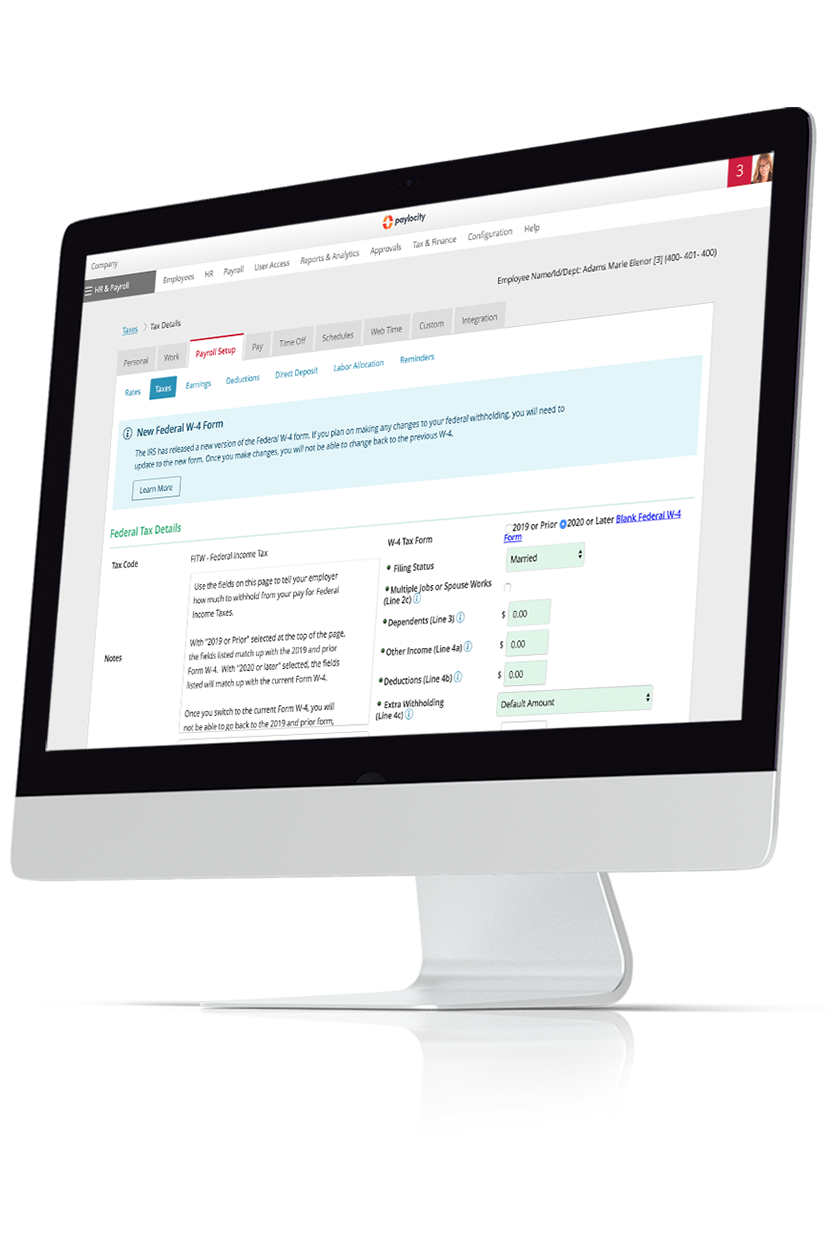Hawaii Payroll Tax Facts
January 17, 2025
Having to comply with unique state taxes and wage laws can make processing payroll doubly daunting. Here’s everything you need to know about these rates and laws for the state of Hawaii.

The Aloha State has a moderately higher minimum wage rate than the one required by the federal government in the Fair Labor Standards Act (FLSA). The biggest difference in rates is the state's tipped minimum wage rate, which is over quadruple its federal counterpart.
When it comes to processing payroll, Hawaii-based organizations must handle the following taxes in addition to those required by the federal government:
- Personal Income (a.k.a. State Income Tax)
- State Unemployment Insurance (SUI)
- Temporary Disability Insurance (TDI)
The below information was last updated January 17, 2025. It is not intended as legal or tax advice.
Hawaii Payroll Tax Rates
Hawaii State Income Tax (SIT)
Hawaii's SIT is progressive, meaning it adjusts based on the income level of the employee paying the tax:
| Filing Status | Income Tax Bracket [Over X] - [But not over Y] |
2025 Income Tax Rate |
| Single / Head of Household | $0 - $9,600 | 1.40% of excess over $0 |
| $9,600 - $14,400 | $134 + 3.20% of excess over $9,600 | |
| $14,400 - $19,200 | $288 + 5.50% of excess over $14,400 | |
| $19,200 - $24,000 | $552 + 6.40% of excess over $19,200 | |
| $24,000 - $36,000 | $859 + 6.80% of excess over $24,000 | |
| $36,000 - $48,000 | $1,675 + 7.20% of excess over $36,000 | |
| $48,000 - $125,000 | $2,539 + 7.60% of excess over $48,000 | |
| $125,000 or greater | $8,391 + 7.90% of excess over $125,000 | |
| Married | $0 - $19,200 | 1.40% of excess over $0 |
| $19,200 - $28,800 | $269 + 3.20% of excess over $19,200 | |
| $28,800 - $38,400 | $576 + 5.50% of excess over $28,800 | |
| $38,400 - $48,000 | $1,104 + 6.40% of excess over $38,400 | |
| $48,000 - $72,000 | $1,718 + 6.80% of excess over $48,000 | |
| $72,000 - $96,000 | $3,350 + 7.20% of excess over $72,000 | |
| $96,000 - $250,000 | $5,078 + 7.60% of excess over $96,000 | |
| $250,000 or greater | $16,782 + 7.90% of excess over $250,000 |
|
Additional Hawaii SIT Details |
|
|
Valid Filing Statuses |
|
|
Exemptions |
|
|
Form W-4 |
Form HW-4 |
|
Reconciliation Frequency |
Annual |
Hawaii State Unemployment Insurance (SUI)
SUI provides unemployment benefits to eligible workers who are unemployed through no fault of their own (as determined by state law) and meet the state’s eligibility requirements.
|
Hawaii SUI Tax Details |
|
|
Taxable Wage Base |
$61,958 |
|
Employee Subject to Tax |
No |
|
Rates for Experienced Employers |
0.00% - 5.60% |
|
Rates for New Employers |
2.40%
|
|
Effective Period |
Calendar Year |
|
Voluntary Contributions Allowed |
No |
Hawaii Temporary Disability Insurance (TDI)
Hawaii's TDI benefits are funded by both employees and employers through mandatory payroll deductions and TDI contributions, respectively.
|
Hawaii TDI Tax Details |
|
|
Maximum Taxable Earnings |
$1,441.72 (weekly) |
| Employee Deduction Rate | Up to half the cost of the premium but no more than 0.5% of the employee's weekly wage |
| Maximum Employee Deduction Amount | $7.21 (weekly) |
| Employer Contribution | Remaining costs after employee contributions are applied |
Hawaii Paid Sick Leave (PSL) Tax
The state of Hawaii doesn’t require employers to collect PSL taxes, nor does the state have a program providing such leave to employees.
Hawaii Paid Family and Medical Leave (PFML) Tax
The state of Hawaii doesn’t require employers to collect PFML taxes, nor does the state have a program providing such leave to employees.
Miscellaneous Hawaii Tax Information
Hawaii Reciprocal Agreement(s)
Reciprocal agreements are when workers who live and work in different states are only required to pay taxes to the state where they live. Hawaii currently has no reciprocal agreements with any other states.
This doesn’t mean, however, that interstate workers living in Hawaii pay double. It’s federally illegal for two states to tax the same income. In most cases, the employee’s work state will credit or refund them at tax time based on the taxes they owe their home state. If the tax rates differ, the employee must cover the difference.
Hawaii Minimum Wage Rates
|
Wage Type |
Hawaii Rates |
Federal Rates |
|
Minimum Wage |
$14.00 |
$7.25 |
|
Tipped Minimum Wage |
$12.75 |
$2.13 |
|
Actual Tip Credit |
$1.25* |
$5.12 |
*If the combined amount the employee receives in wages and tips is at least $7 more than the applicable minimum wage.
Paying Payroll Taxes in Hawaii
Hawaii Employer Registration
The agencies below can help with your state-based employer registration, including best practices, account numbers, and unemployment information. Contact the Department of Taxation for withholding tax topics and the Department of Labor and Industrial Relations for unemployment tax topics.
|
Registration Details |
Department of Taxation |
Department of Labor and Industrial Relations |
|
Phone |
(808) 587-1455 | (808) 586-8914 |
|
Online Registration |
Hawaii Tax Online Login Page | |
|
Registration Instructions |
Online registration is required and a combined version that includes both departments is available. Account numbers will be issued in 7-10 days via the online process. Separate account numbers for each tax type can be issued under the combined registration or separately if employers choose to register with each department individually. |
|
|
Employer Self-Service Login |
Hawaii Tax Online Login Page | Unemployment Insurance Login Page |
Additional Hawaii Payroll Tax Resources
- Hawaii Business Action Center
- Department of Labor Unemployment Insurance Homepage
- Department of Taxation Forms and Publications Library
This information is provided as a courtesy and may be updated at any time. It is not intended as legal or tax guidance. If you have questions or concerns, we encourage you to seek the advice of a qualified CPA, tax attorney, or advisor.

Get Taxes Done Right, Without the Stress
We know there's a lot that goes into preparing and filing payroll tax forms. Save time and get support from our expert team. As a Registered Reporting Agent with the IRS, we can help prepare and file all the necessary forms you need to remain compliant - even in the face of changing legislation. Learn more here.